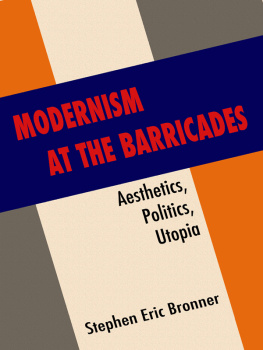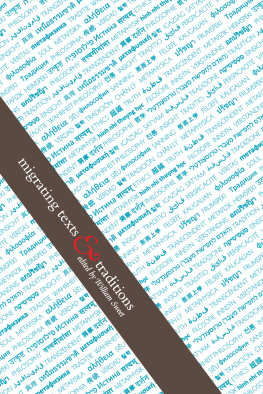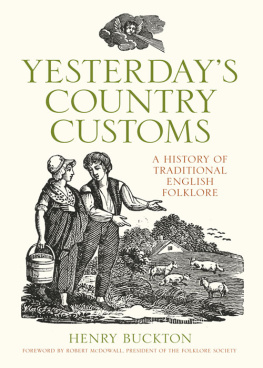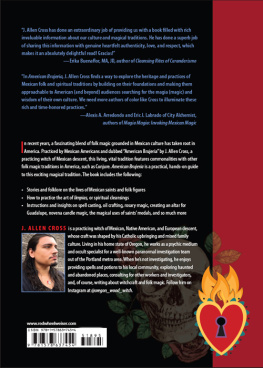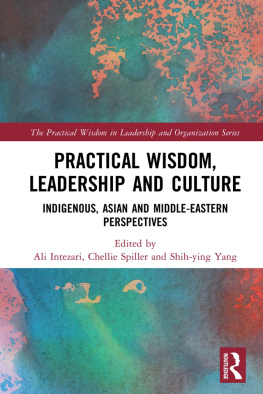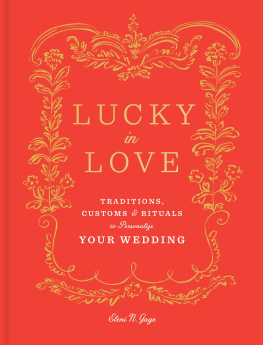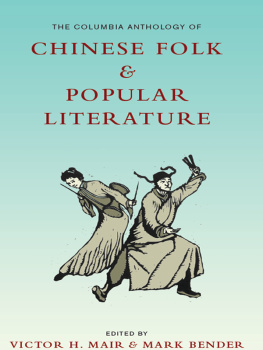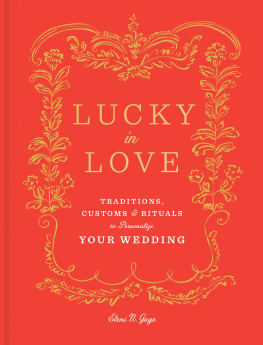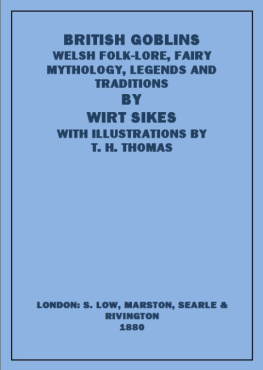Explaining Traditions
Explaining
Traditions
Folk Behavior
in Modern Culture
SIMON J. BRONNER

Copyright 2011 by The University Press of Kentucky
Scholarly publisher for the Commonwealth, serving Bellarmine University, Berea College, Centre College of Kentucky, Eastern Kentucky University, The Filson Historical Society, Georgetown College, Kentucky Historical Society, Kentucky State University, Morehead State University, Murray State University, Northern Kentucky University, Transylvania University, University of Kentucky, University of Louisville, and Western Kentucky University. All rights reserved.
Editorial and Sales Offices: The University Press of Kentucky 663 South Limestone Street, Lexington, Kentucky 40508-4008 www.kentuckypress.com
15 14 13 12 11 5 4 3 2 1
Library of Congress Cataloging-in-Publication Data
Bronner, Simon J.
Explaining traditions : folk behavior in modern culture / Simon J. Bronner.
p. cm.
Includes bibliographical references and index.
ISBN 978-0-8131-3406-2 (hardcover : alk. paper)
ISBN 978-0-8131-3407-9 (ebook)
1. FolkloreUnited States. 2. Oral traditionUnited States.
3. Communication in folkloreUnited States. 4. United StatesSocial life and customs. I. Title.
GR105.B666 2011
398.20973dc23 2011017139
This book is printed on acid-free paper meeting the requirements of the American National Standard for Permanence in Paper for Printed Library Materials.

Manufactured in the United States of America.

| Member of the Association of
American University Presses |
For Michael Owen Jones,
who challenged me to explain
why we do what we do
Contents
Illustrations
Acknowledgments
I have dedicated this work to Michael Owen Jones, professor emeritus of folkloristics and history at UCLA, to credit him as no endnote tucked into the back of a book can. It is not a single book I cite in honoring his contribution to what he calls a behavioristic approach to the study of tradition, although I admit to having an ah-ha moment in my education upon reading The Hand Made Object and Its Maker (1975), in which he explains an apparently strange rocking chair rooted in tradition with reference to the psychological states of its maker (a concern I carried through to The Carvers Art [1996a]). Although I was not his student, his presentations, publications, and dinner conversations about the logic and aesthetics of folklife taught me many profound lessons. I cannot say that he will agree with all the explanations I give in this book, but I hope readers will appreciate his inspiration for the praxis of explaining traditions.
Many generous individuals aided me in depicting the different cultural scenes in this book, and I wish I could list them all. In this limited space, let me at least give notice to the inspiring figures who have been there since I began my intellectual pursuit of traditions in the 1970s. Although not composing a unified school of thought, they are all familiar to one another, and they have commendably unpacked traditions as cultural practices and as modes of thought. Of this group, special mention should be made of senior member Bill Nicolaisen. He was the first professor I encountered who talked seriously and cogently about tradition, and as a folklorist, he presented me with valuable tools of analysis. Spanning the continental traditions of Europe and America, he was the first recipient of the American Folklore Societys coveted lifetime achievement award, and he is a hero to scholars in many fields, including linguistics, philology, geography, history, and literature. Other comrades of various disciplinary stripes with whom I have had many discussions spanning many decades include Roger Abrahams, Ronald L. Baker, the late Mac Barrick, Haya Bar-Itzhak, Dan Ben-Amos, Erika Brady, Linda Dgh, Kurt Dewhurst, James Dow, the late Alan Dundes, Bill Ellis, Tim Evans, Gary Alan Fine, Henry Glassie, Sylvia Grider, William Hansen, the late Louis C. Jones, Barbara Kirshenblatt-Gimblett, Elaine Lawless, Carl Lindahl, Marsha MacDowell, the late Bill McNeil, Jay Mechling, Wolfgang Mieder, Paul Oliver, Elliott Oring, the late Roderick Roberts, the late Warren Roberts, the late Sue Samuelson, Steve Siporin, Brian Sutton-Smith, Barre Toelken, Patricia Turner, John Vlach, Peter Voorheis, Bert Wilson, and Don Yoder. To this varied lot, let me add my thanks to generations of students and colleagues at Penn State University, Harvard University, University of California at Davis, Dickinson College, Leiden University, and Osaka University, where I have taught and have also learned from their different practices and perspectives.
When not in the classroom, field, or conference center, I am blessed at home with a supportive family. Rather than being a place where I would put my project on the shelf, my household deepened my thinking about tradition. At one end, my Holocaust-survivor mother, in both language and memory, reminds me of folk worlds past; at the other end, my children continually recount nascent traditions projecting the future. In between, in faith and action, my wife, Sally Jo, helps me figure out, in the moment, the beliefs by which we think and act, individually and collectively. These loved ones were the inspiration for many of the topics I investigate in this book, including childhood development; coming-of-age rituals; aging and death; ethnicity and race; masculinity and gender; material and visual culture; the Holocaust; Jewishness; the dialectology of Yiddish and Pennsylvania German, central and eastern European culture; the Internet; sports; and American studies.
To form this books edifice of tradition, I crafted a number of chapters from previously published materials. All the original work was substantially revised and expanded in light of the theme of this book and updated with new sources and ideas. Chapters 1, 2, 4, 5, and 9 have not appeared in print before. In the best tradition of scholarship, I want to acknowledge the following organizations for their permission to build on my earlier work: Columbia University Graduate School of Arts and Sciences for Analyzing the Ethnic Self: The Hinkeldreck Theme in Pennsylvania-German Folk Narrative, in Columbia Journal of American Studies; Springer Publishing for From Landsmanshaften to Vinkln: Mediating Community among Yiddish Speakers in America, in Jewish History; Taylor & Francis Group for Building Tradition: Control and Authority in Vernacular Architecture, in Vernacular Architecture in the 21st Century; University Press of Kentucky for Left to Their Own Devices: Interpreting American Childrens Folklore as an Adaptation to Aging, in Southern Folklore; Western States Folklore Society for Let Me Tell It My Way: Joketelling by a Father and Son, in Humor and the Individual, and portions of The American Concept of Tradition: Folklore in the Discourse of Traditional Values and Folk Logic: Interpretation and Explanation in Folkloristics, in Western Folklore.
Prologue
Beginning with Tradition
Next page

